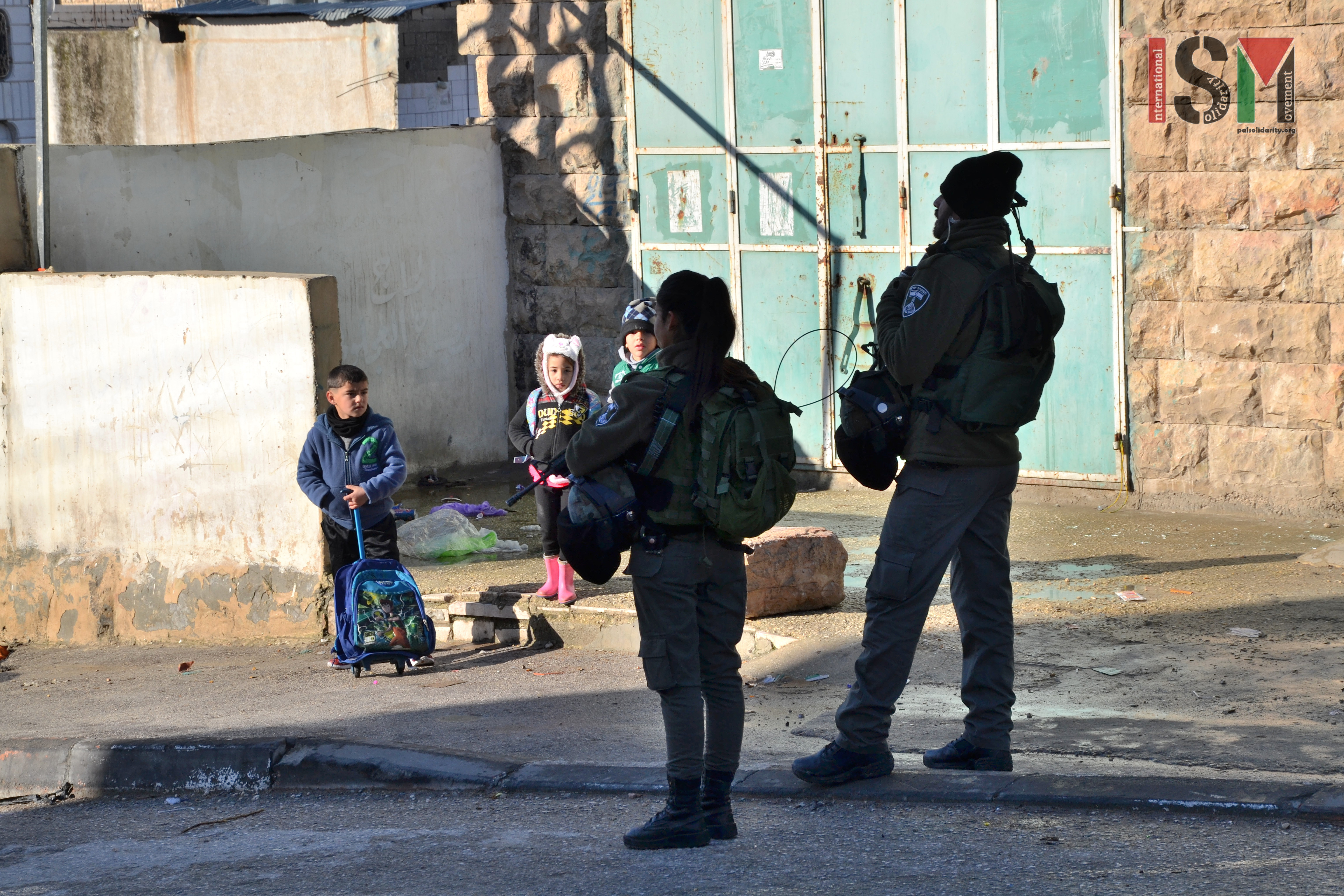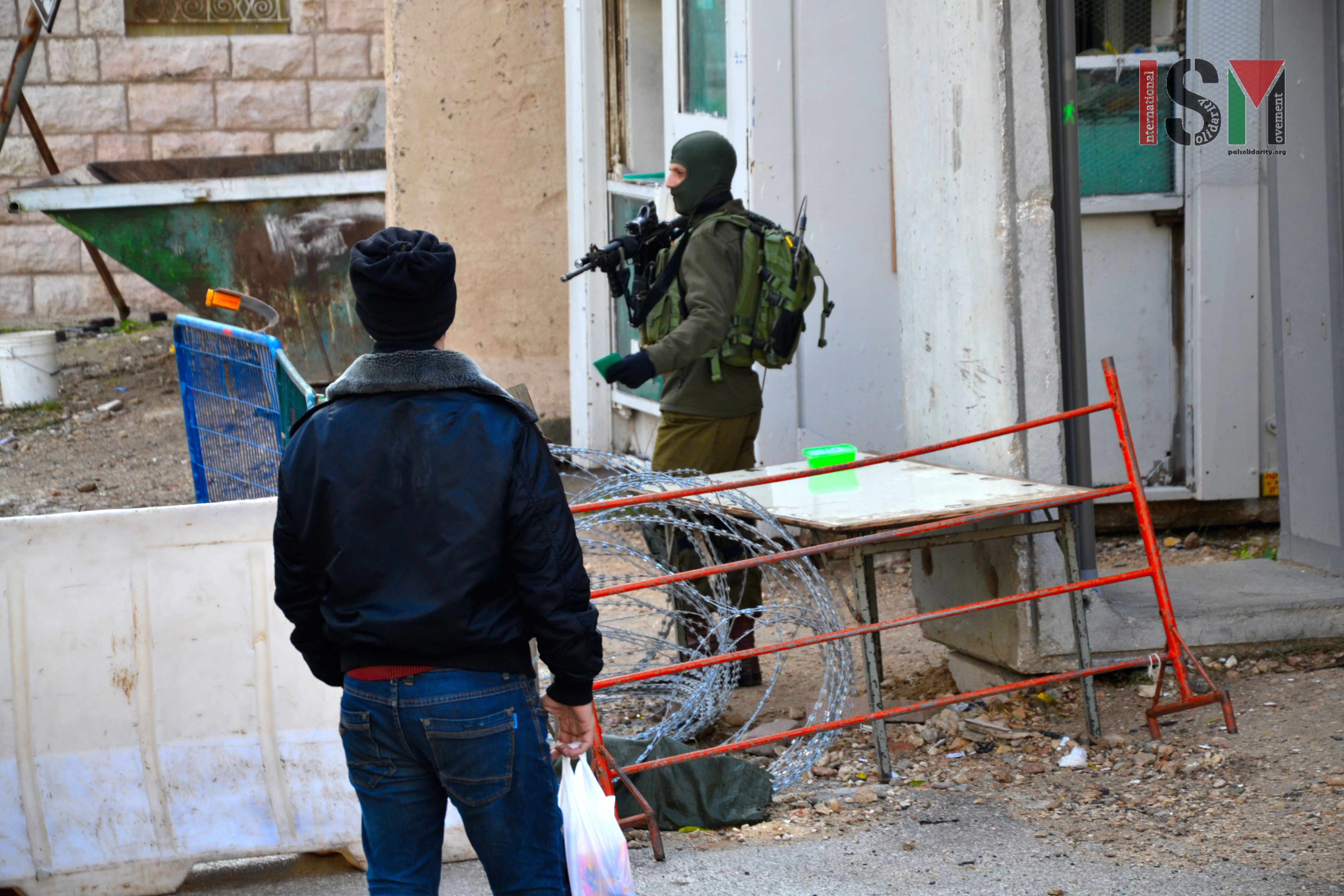-
Collective punishment on the way to school – the Israeli forces’ ‘job’
1st February 2017 | International Solidarity Movement, al-Khalil team | Hebron, occupied Palestine On Wednesday, 1st February 2017, Israeli forces intimidated school-children on their way to school. In the process, they closed one of the main checkpoints delaying teachers and school-children as they were on their way to school. As groups of children were passing the checkpoint […]
-
Photo story: Gilbert checkpoint impeding Palestinian daily life (January 2017)
31st January 2017 | International Solidarity Movement, al-Khalil team | Hebron, occupied Palestine In the old city of occupied al-Khalil (Hebron), Palestinians’ freedom of movement is impeded by a large number of Israeli checkpoints. In the Tel Rumeida neighborhood, many school-children and teachers are forced to pass at least one, often more, checkpoint daily on […]
-
The checkpoint regime: Israel and the fragmentation of Palestinian society
31st January 2017 | International Solidarity Movement, al-Khalil team | Hebron, occupied Palestine There are 17 permanent checkpoints in the H2 area under full Israeli military control in occupied al-Khalil (Hebron), manned by Israeli forces and impeding Palestinian freedom of movement. The official rhetoric of the Israeli government is that these checkpoints serve ‘security purposes’. […]
Action Alert An Nabi Saleh Apartheid Wall Arrests BDS Bethlehem Bil'in Cast Lead Demonstration Denial of Entry Ethnic Cleansing Farmers Gaza Global Actions Hebron House Demolition International law Israeli Army Jerusalem Live Ammunition Nablus Ni'lin Prisoner Ramallah Rubber-coated steel bullets Settlement Settlers Settler violence Tear-Gas Canister Video



